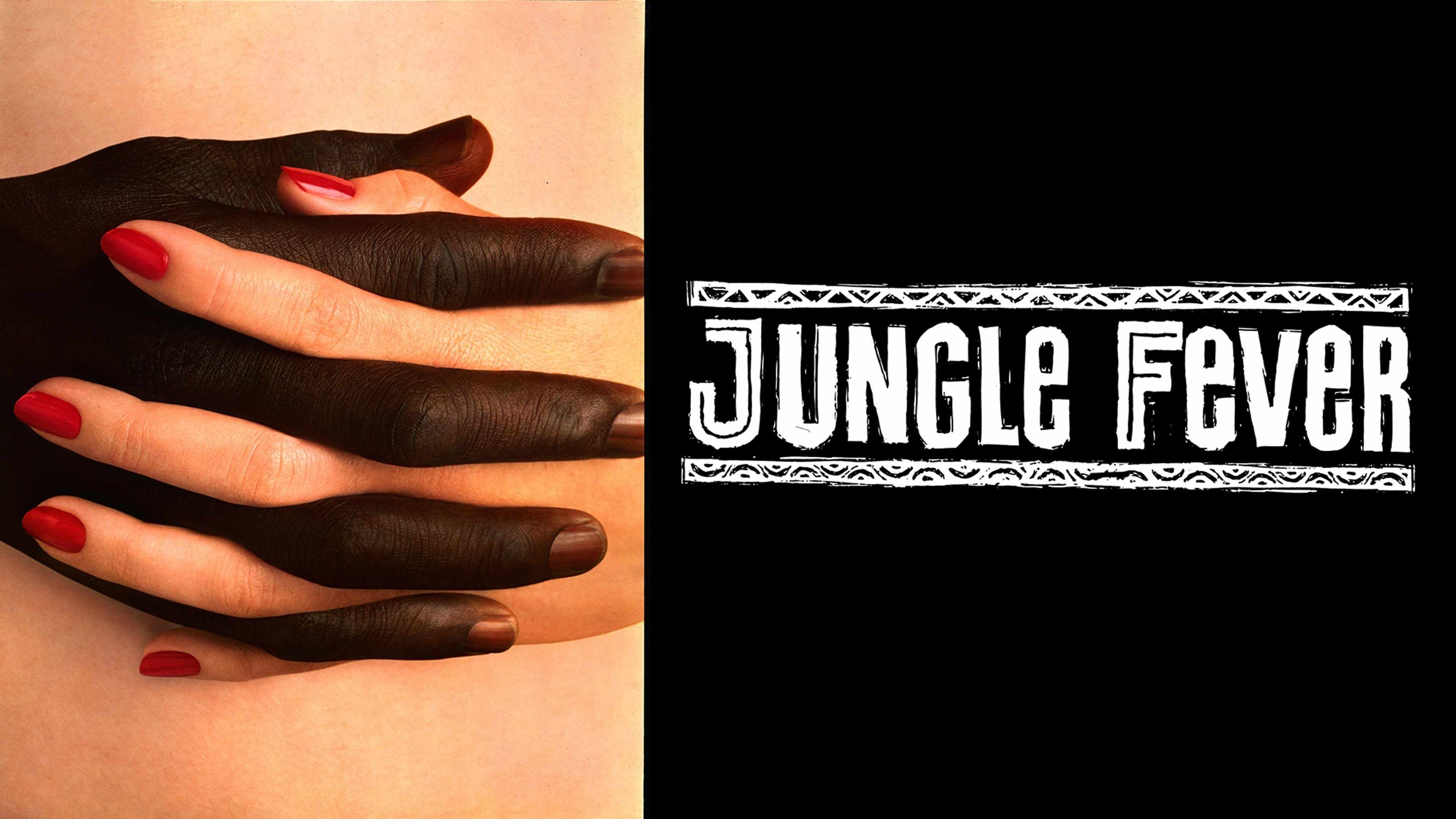
Are you a movie lover craving some interesting trivia about one of the most provocative films of the 90s? Well, buckle up because we’re about to dive into the captivating world of “Jungle Fever.” Directed by the legendary Spike Lee, this thought-provoking drama delves deep into the complexities of interracial relationships. Released in 1991, “Jungle Fever” sparked controversial conversations and challenged societal norms, making it a landmark film of its time. In this article, we will explore 31 fascinating facts about the movie that will give you a new appreciation for its impact. From the stellar ensemble cast to the powerful themes it tackles, get ready to uncover behind-the-scenes stories and little-known details about “Jungle Fever.” So sit back, relax, and let’s embark on this cinematic journey!
Key Takeaways:
- Jungle Fever” is a thought-provoking movie that explores the challenges of interracial relationships, sparking important conversations about love, race, and societal norms.
- The film’s powerful performances, compelling storytelling, and relevant themes make “Jungle Fever” a timeless and impactful movie that encourages reflection and dialogue about racial stereotypes and prejudices.
Jungle Fever explores interracial relationships.
Jungle Fever, directed by Spike Lee, delves into the complexities and challenges faced by couples in interracial relationships.
The movie was released in 1991.
Jungle Fever hit the big screens in 1991, captivating audiences and sparking important discussions about race and love.
Wesley Snipes and Annabella Sciorra portrayed the lead characters.
Wesley Snipes and Annabella Sciorra delivered powerful performances as Flipper Purify and Angela Tucci, the central characters in the film.
Jungle Fever received critical acclaim.
The movie received widespread praise from critics for its bold storytelling, thought-provoking themes, and exceptional performances.
Spike Lee wrote the screenplay.
Aside from directing, Spike Lee also wrote the screenplay for Jungle Fever, showcasing his talent as a versatile filmmaker.
The film explores the effects of stereotypes and prejudice.
Jungle Fever delves into the harmful impact of stereotypes and prejudices on relationships, shedding light on important social issues.
Samuel L. Jackson portrayed the character of Gator Purify.
Samuel L. Jackson delivered a compelling portrayal as Gator Purify, Flipper’s drug-addicted brother.
The movie features an ensemble cast.
Jungle Fever boasts an impressive ensemble cast, including actors such as John Turturro, Halle Berry, and Queen Latifah, who all added depth to the storyline.
The soundtrack of Jungle Fever is memorable.
The film’s soundtrack, composed by Stevie Wonder, adds another layer of emotion and enhances the viewing experience.
Jungle Fever addresses societal issues.
Through its narrative, the movie tackles racism, addiction, and the challenges faced by interracial couples, creating a thought-provoking cinematic experience.
The film highlighted Spike Lee’s signature directorial style.
Spike Lee’s unique visual style and storytelling techniques were prominent throughout Jungle Fever, further establishing him as a visionary filmmaker.
Jungle Fever was a box office success.
The film resonated with audiences and became a commercial hit, further cementing Spike Lee’s reputation as a director with a powerful voice.
The movie depicts the complexity of human relationships.
Jungle Fever delves into the intricacies of human connections and explores the emotional turmoil experienced by the characters.
It sparked important conversations about race and love.
Jungle Fever ignited discussions about the challenges faced by interracial couples and the prevailing societal attitudes towards such relationships.
Spike Lee received critical acclaim for his directing.
Spike Lee’s skillful direction in Jungle Fever earned him praise from critics, solidifying his position as a significant figure in cinema.
The film addresses the concept of forbidden love.
Jungle Fever challenges societal taboos surrounding interracial relationships and questions the notion of love without boundaries.
Jungle Fever explores the theme of identity.
The movie delves into the struggles faced by its characters in defining their identities in a world full of prejudices and preconceived notions.
Wesley Snipes won a Cannes Film Festival Award for his performance.
Wesley Snipes‘ portrayal of Flipper Purify garnered critical acclaim, earning him the Best Actor award at the Cannes Film Festival.
The movie delves into societal perceptions of interracial relationships.
Jungle Fever challenges stereotypes and examines societal perceptions surrounding love between individuals from different racial backgrounds.
It highlights the influence of family dynamics on relationships.
Jungle Fever explores the impact of family expectations and dynamics on the central characters’ love story, adding depth to the narrative.
The film showcases the consequences of infidelity.
Jungle Fever delves into the destructive consequences of infidelity on relationships, portraying its emotional toll on the characters involved.
Jungle Fever presents a realistic portrayal of New York City.
The movie captures the vibrant essence of New York City, providing a backdrop that reflects the diversity and complexities of urban life.
It challenges social norms.
Jungle Fever confronts societal norms and expectations, encouraging viewers to question the biases ingrained within them.
The movie delves into the African American experience.
Jungle Fever offers a nuanced exploration of the African American experience, shedding light on the challenges faced by individuals within this community.
Jungle Fever received awards and nominations.
The film was recognized for its exceptional storytelling, earning nominations for various accolades, including the NAACP Image Awards.
The movie explores the complexities of addiction.
Jungle Fever portrays the devastating consequences of drug addiction, shedding light on the impact it can have on individuals and their relationships.
It emphasizes the importance of communication in relationships.
Jungle Fever underscores the significance of open and honest communication in overcoming challenges and preserving relationships.
Jungle Fever was praised for its powerful performances.
The cast’s compelling performances in Jungle Fever garnered praise from critics and audiences alike, contributing to the film’s impact.
The movie tackles racial stereotypes.
Jungle Fever challenges racial stereotypes and confronts the harmful effects they can have on individuals and their relationships.
Jungle Fever remains a relevant film.
Despite its release in the early ‘90s, Jungle Fever continues to resonate with audiences, addressing themes that are still prevalent today.
The movie encourages dialogue and reflection.
Jungle Fever sparks meaningful conversations and prompts viewers to reflect on their own biases and attitudes towards interracial relationships.
Conclusion
In conclusion, Jungle Fever is a thought-provoking and powerful movie that delves into the complexities of interracial relationships. Directed by Spike Lee, the film tackles sensitive themes such as racism, cultural identity, and societal prejudice with honesty and raw emotions. With a stellar cast and insightful storytelling, Jungle Fever succeeds in shedding light on the challenges faced by individuals caught in the midst of societal expectations and personal desires.
FAQs
Q: Who directed the movie Jungle Fever?
A: Jungle Fever was directed by acclaimed filmmaker Spike Lee.
Q: When was Jungle Fever released?
A: The movie was released in 1991.
Q: What is the plot of Jungle Fever?
A: Jungle Fever revolves around the forbidden romance between an African American man and an Italian American woman, exploring themes of racial tension and societal prejudices.
Q: Who starred in Jungle Fever?
A: The movie features a talented cast including Wesley Snipes, Annabella Sciorra, Spike Lee, and Samuel L. Jackson.
Q: Is Jungle Fever based on a true story?
A: No, Jungle Fever is a work of fiction.
Q: Did Jungle Fever receive any awards or nominations?
A: Yes, Jungle Fever was well-received by critics and received several awards and nominations, including an Academy Award nomination for Best Supporting Actor (Samuel L. Jackson) and a Golden Globe nomination for Best Supporting Actress (Ruby Dee).
Q: Does Jungle Fever tackle any social issues?
A: Yes, the movie tackles social issues such as racism, cultural identity, and societal prejudices with a nuanced and thought-provoking approach.
Q: Is Jungle Fever available for streaming?
A: Jungle Fever is available on various streaming platforms. Check your preferred streaming service for availability.
Was this page helpful?
Our commitment to delivering trustworthy and engaging content is at the heart of what we do. Each fact on our site is contributed by real users like you, bringing a wealth of diverse insights and information. To ensure the highest standards of accuracy and reliability, our dedicated editors meticulously review each submission. This process guarantees that the facts we share are not only fascinating but also credible. Trust in our commitment to quality and authenticity as you explore and learn with us.


